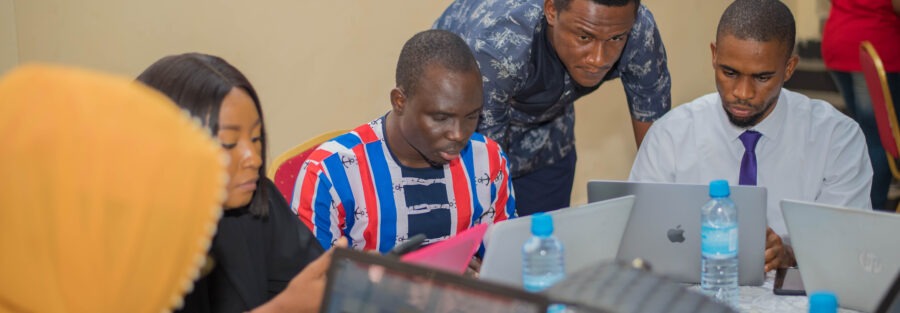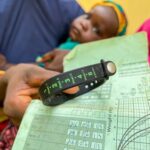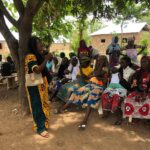The Linking Underserved Populations to Sexual and Reproductive Health Services (LUPSS) project was designed to tackle limited access to sexual and reproductive health (SRH) services in the Wassa IDP Camp in Abuja, Nigeria.
Supported by the Johns Hopkins University 120 under 40 grant, the project partnered with Peach Aid Medical Initiative and Stand with a Girl Initiative to deliver menstrual hygiene products, economic empowerment, and mobile family planning technology for IDP women and girls.
The goal was to increase modern contraceptive use by 50%, sustain family planning (FP) continuity, improve menstrual hygiene access, and support economic empowerment for women in the camp.
Demand Generation:
To address barriers to SRH service access, Sydani initiated a needs assessment focusing on demand and supply challenges. The assessment informed an effective intervention model with tailored outreach campaigns, including the World Contraception Day event and mini-quarterly sessions, to raise awareness. Technology-driven solutions were implemented with bulk SMS and virtual consultations through Virtual Family Planning Providers (VFPPs).
The team also collaborated with local authorities to train service providers and ensure a steady supply of FP products in camp health facilities. Menstrual cups were distributed to promote menstrual hygiene, while economic empowerment workshops helped women gain financial independence, fostering a supportive environment for health service engagement.
Result: The LUPSS project achieved a 78% increase in contraceptive uptake within the IDP camp, surpassing the target and significantly shifting attitudes toward family planning, with greater spousal support for women seeking SRH services. Despite challenges posed by the COVID-19 pandemic, the project effectively enhanced FP service utilization, SRH awareness, and access to essential hygiene products, contributing to improved overall health outcomes among IDP women and girls.




